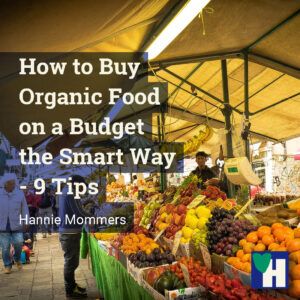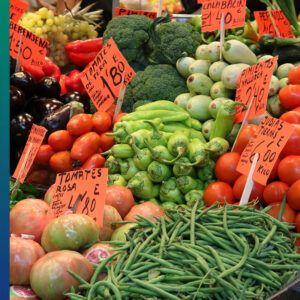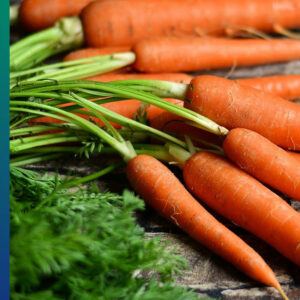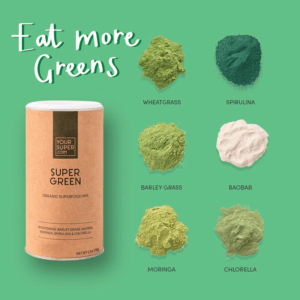
Buying organic foods is a growing necessity for many families. A lot of children are already obese at a young age. Half of the people living in the Western world have chronic diseases. The majority of elderly people are on medications that can be avoided for a great deal if we make healthy choices.
The more concerned we become about the pollutants and chemicals in our food, the greater the need for organic replacements. However, it’s not always easy to go the organic way as this can be expensive.
Once we are motivated enough it is very doable to buy organic food on a budget. If more people did this, it would be a big advantage in two ways: prices would drop because of more demand and organic farmers would get their fair share.
Some of the links are affiliate links. As an affiliate associate, we earn a commission when you purchase any of the products offered through the shared links at no extra cost for you. This helps us maintain this website.
Table of contents
9 Tips to buy organic food on a budget
Shop smart

The best time to do your shopping is right after a meal. If you are not hungry, you are not making impulse purchases.
Make your shopping list at home so you can check what’s still in stock. If your kitchen cabinets are well organized, you have a quick overview, so you don’t buy things you still have.
Browse the offers. Often these are excellent articles that are close to the expiration date. Depending on the product, there is still time left before it deteriorates.
Related: Food with a Conscience is More than just Healthy Food
Personally, I think it’s strange that a pizza is cheaper than a bag of organic Kiwis. Eating pizza every day will eventually ruin your health and immune system, where eating organic fruits and vegetables will strengthen your natural defense against diseases.
The hidden health costs of eating fast food and foods that have been maltreated with pesticides should be added at the purchase price. But as long as this is not enforced, it’s good to inform yourself of the benefits of eating healthy.
Buy in-season

Seasonal products cost less and are also better for you. Our bodies are designed to eat according to where we live and buying in-season helps you achieve this.
In the summer we need more watery foods like cucumbers, tomatoes, and peppers. These also have higher sources of vitamins and nutrients designed to help us during the summer months. In the winter our bodies need the dense energy found in root vegetables such as squash and pumpkins.
Where possible choose seasonal organic fruit and vegetables for your table. If you frequent organic farmers’ markets and local ecological shops, this is quite easy to do as many tend to sell only fruits and vegetables from the season.
Related: Wonderful Advantages of Watermelon, especially in a Hot Summer
Unravel marketing babble
True organic produce has a label from certified organizations. There is a lot of ‘greenwashing’ since the big companies have discovered that people actually want to pay more for quality. That makes it tempting to want a portion of that cake too and to use words like ‘natural’ and ‘green’ on the packaging.
Buying local versus organic

Many small local farmers use ethical methods for growing their crops – meaning they grow in the most natural way possible and use ancient methods like companion planting to do pest control. However, a lot of them are not certified organic farmers as this can be a pricey and lengthy process for the average small farmer.
In this case, it may be best to weigh out the options of buying local versus imported organic. Imported organic fruits and vegetables can be harmful to the environment depending on the transport issue and tend to lose more nutrients and vitamins due to long storage times and cooling.
Buying local, fresh, in-season produce may be a better alternative in a lot of cases. Try to get acquainted with local farmers so you know how they handle their crops. You may be also lucky enough to have a local, organic farmers’ market near you.
Related: Organic Companion Planting for a Healthy Kitchen Garden
Grow your own
Growing your own is more popular than ever. It really isn’t that difficult or time-consuming to grow your own vegetables and fruits. You don’t need to go down the route of being completely self-sufficient (unless you’d like to be of course), you can simply grow a few vegetables to help make a dent in your food costs.
It’s also very rewarding to grow your own. Some of the easiest vegetables to grow are arugula, spinach, tomatoes, and cucumbers. All are quite pricey if purchased organically at the supermarket and you can easily grow your own at home even with little space.
Try your hand at growing different varieties of fruit and vegetables and you may just find you get hooked, as happened to Tom and me. There is nothing more satisfying than growing and harvesting your own food.
Related: Grow your own Fruits and Vegetables Sustainably and Tasty
Go vegetarian or vegan
Meat is expensive and organic meat is very expensive. When meat doesn’t cost a lot of money, you can be sure that it is produced in a quick and animal degrading manner. It will be full of growth hormones we certainly don’t want into our bodies.
An organic plant-based diet doesn’t have these disadvantages. Some people think they can’t live without their daily meat, yet I can assure you it’s just in the mind. When we put our mind to it we can move mountains.
Join a cooperation

A co-op is wonderful and truly a win-win situation. They can be organized in different ways. In the Netherlands, we were members of the organic supermarket chain Odin. We paid a monthly membership fee that was the same for everyone and because of that, all products were available at a reduced price.
Now that we live in Spain, we joined the co-op program of our local organic shop. They have a different setup. We pay an amount at the beginning of the month. Depending on the amount, a certain discount applies to the products.
How is this a win-win? The store is assured of turnover and can therefore also offer certainty to the organic farmers. The customer benefits from cheaper products and can be assured of regular supplies.
Buy in bulk
In all organic shops, I have visited so far it is possible to buy goods in bulk. Bring your own jars or paper bags and fill them with what you need. There are still products that are packaged in plastic, also in organic stores, unfortunately, but if we all say no to the plastic-wrapped goods, things will change.
Related: 9 Tips to Reduce Packaging for Consumers (and Listening Producers)
Are you considering going organic?

To buy organic food on a budget is possible with some research and persistence. It’s also worth adding that buying and cooking foods from scratch may be cheaper (even organic varieties) than buying prepackaged foods – not to mention that they are better for you.
You can also look at other ways to cut back on your budget, such as eating out less or driving one car instead of two or three and use the extra funds for your organic food budget.
Have you considered buying organic produce? Tell us in the comment box.


I really like your suggestion to buy locally and to get to know some of the growers so I know how they handle their crops. I am on a limited income and I had despaired of ever being able to afford much organic food. But this idea really appeals to me. I never thought how the certification process might be cost-prohibitive to local farmers even though they might use companion planting and other natural methods to control pests.
Thanks for a great suggestion! I signed up for your newsletter too because I think you probably could teach me a lot of things like this.
Thanks!
That’s marvelous, Lisa, and you are very welcome to our tribe!
Yes, checking out local farmers is a good idea. Local doesn’t mean necessarily uncertified organic, of course, but we know from our own experience that some are really caring for the environment and doing the right things.
When we were living in the Netherlands there was a field nearby our village. A woman had rented the field from the municipality after a farmer had put corn on it for years. Because of that former crop, she had to cultivate the field for at least 3 years before it could be declared organic.
After those 3 years, she could ask for certification but she had calculated that her field was too small so she would never be cost-efficient because of the high fees. Such a pity. Her plan is brilliant! It is some sort of a co-op. She cultivates and grows all kinds of vegetables and fruits, and the members pay her a monthly fee and harvest a specified amount every week themselves.
It’s one of the best win-win-win situations I have ever seen. She gets paid monthly in advance so she is ensured of an income and doesn’t have to care about the difficult tasks of harvesting. The field is not a mono-culture anymore and an oasis for all kinds of animals and insects. And the members have unsprayed vegetables on a budget plus harvest the produce right before they are going to prepare it.
If she has more than the members have harvested, she puts it in baskets on a table at the entrance with a can next to it to put money in. I have asked her, what probably everyone asks when hearing this: Are people honest enough to do that?
She told me that most people are. And that she thinks that whoever isn’t, probably doesn’t have money so she granted them the free vegetables. Isn’t that a marvelous attitude?
Thanks for your comment and your subscription, Lisa, see you in the emails I will be sending. 🙂
Hi, I agree with you a hundred percent that buying organic foods is a growing necessity for many families, and a lot of children are already obese at a young age, as you outlined. The 9 tips of how to buy organic food on a budget the smart way are so crucial. This is helpful, thank you very much for sharing this important information.
Hi Kokontala, glad you liked the information and that you can take advantage of the tips. It is my mission to inspire as many people as I can to turn to a sustainable lifestyle. And why should it be withheld from people with little money. Everybody should be able to buy healthy food.
It’s an outrage that traditional farming can go on poisoning us and the earth without any additional costs than paying for the poison, where organic farmers have to pay for the natural ways of pest control PLUS the certification, which is a huge amount, that most farmers can hardly afford.
Especially when you realize that organic farming is in fact the traditional way of farming until less than a century ago.
The best way to reduce cost as you concluded is reducing how much you eat outside. But if you ask me it is not just about not eating outside but eating healthy. That is where growing your own vegetables as you recommended becomes another important factor. You are not just reducing cost but eating healthy like you rightly outline growing your own vegetable is not difficult and it does not consume much time. You can always do it as a form of relaxation
Yes, that is a great way of looking at it, Parameter, it is indeed very relaxing to busy yourself in the garden or with a couple of plant pots and see the plants grow and flourish.
Going out for lunch or dinner has its own perks of course. Yet, I know a couple who go out once a week to eat a MacDonald’s with the whole family. Sure they have a good time, at this moment. The actual bill will be presented in a couple of years’ time when – universe forbids – they will get sick because they have undermined their natural immunity system.
For the MacDonald’s bill, they could prepare healthy, organic meals for all of them for 2 days. Really. And still, these are people that keep telling me that organic food is out of their league because it’s too expensive!
I also find it strange that a lot of “bad” foods like pizza are less expensive than real, good foods. I think this is where the Government should come in and make sure they do something to encourage people to buy healthier food and not make these fast foods so tempting by their price as well as their smell, taste, etc. I know that we as individuals have (or should) have self-control and buy healthier food but some price adjustments would also be of help to some of us.
Buying in-season foods is one of the easiest and straightforward ways to buy organic food on a budget. I try to eat the foods that are in-season and it works great as I can also diversify things a lot by doing this.
You and me both, Roberta. It still amazes me as well that pizza is so cheap compared to organic vegetables.
Coincidentally I read in a newspaper this morning that – surprise – that the appeal to the Dutch food industry in the past 5 years has not led to significant improvements in the salt and sugar additions, nor in the amount of saturated fat used.
Just asking won’t turn the producers over, so yes, there has to be a forced regulation.
You’re right we can vary a lot even with one kind of vegetable. Cook it, putting it on a grill, frying in olive oil, etc. Every time, especially if you use different herbs each time, it will taste different and delicious.
Thanks for your comment and take care.
Hey, thanks for sharing some amazing tips for buying organic food on a budget! I’m definitely going to implement some of them in my daily shopping routine.
You mentioned the “Buy in-season” tip, and this is one of the most important ones, I think. When you want to eat watermelon in the middle of the winter, you can’t expect it to be completely organic.
We should change our habits a little bit, and eat what’s available to eat during that season.
Exactly, Petar. And probably the watermelon won’t even taste in the winter. We need ‘earthy’ vegetables in winter like turnip and carrots to warm ourselves up. And the watermelon in summer to cool our bodies and to quench our thirst.
I am glad this article gave you some inspiration. All the more since one of your comments on another one of my articles gave me the inspiration for this article. 😀
Thanks for responding and stay healthy. 🙂
Thank you, Hannie! I am going to implement this right away!